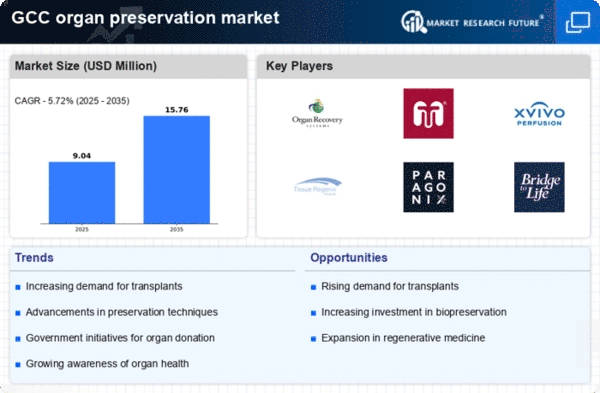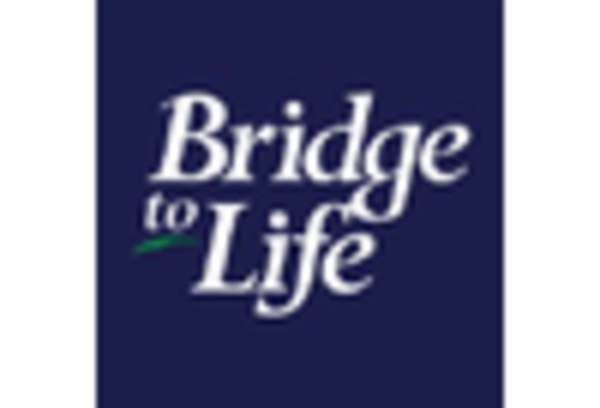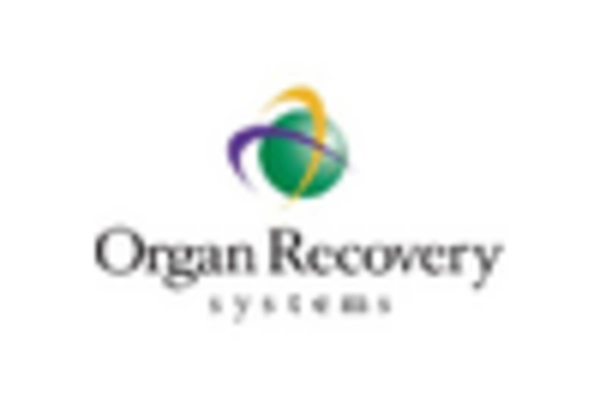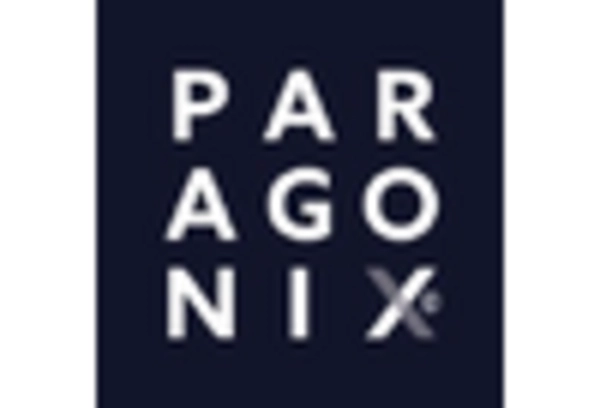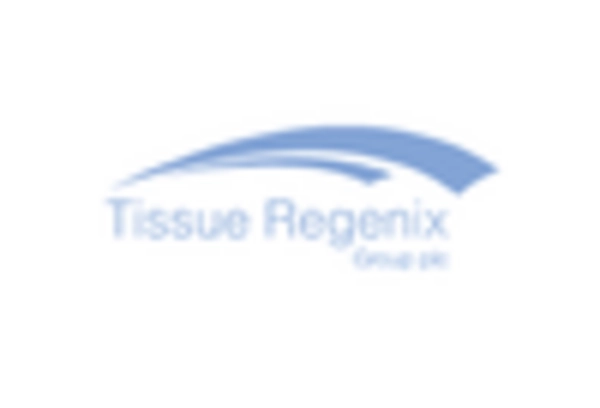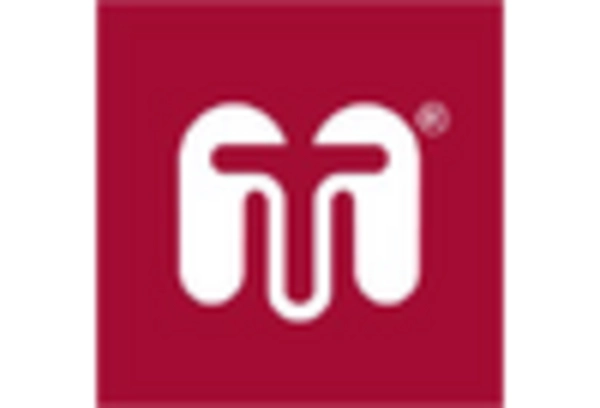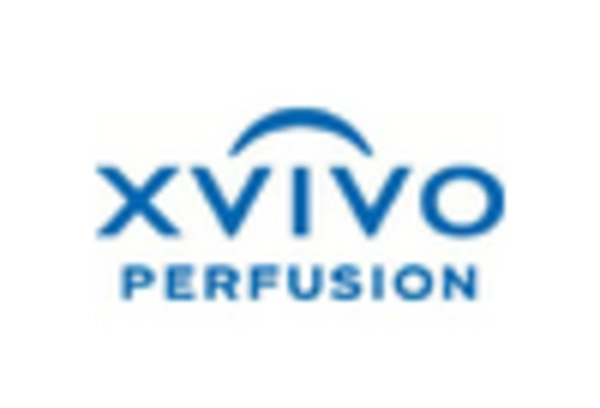Increasing Healthcare Expenditure
The rising healthcare expenditure in the GCC region is a pivotal driver for the organ preservation market. Governments are allocating more funds towards healthcare infrastructure, which includes organ transplant facilities and preservation technologies. In 2025, healthcare spending in the GCC is projected to reach approximately $100 billion, reflecting a growth rate of around 5% annually. This increase in funding is likely to enhance the capabilities of hospitals and clinics, thereby improving organ preservation methods. Enhanced healthcare facilities can lead to better organ storage solutions, which are crucial for successful transplants. As a result, the organ preservation market is expected to benefit from this trend, as more resources are directed towards advanced preservation techniques and technologies.
Growing Awareness of Organ Donation
There is a notable increase in awareness regarding organ donation across the GCC, which is significantly influencing the organ preservation market. Educational campaigns and initiatives by health authorities are fostering a culture of organ donation, which is essential for addressing the shortage of available organs. As awareness grows, the demand for effective preservation methods becomes more pronounced. In 2025, it is estimated that organ donation rates in the GCC could increase by 15%, leading to a higher need for preservation solutions. This heightened awareness not only encourages more individuals to register as organ donors but also emphasizes the importance of preserving organs for successful transplantation, thereby driving growth in the organ preservation market.
Rising Incidence of Chronic Diseases
The increasing incidence of chronic diseases in the GCC is a significant driver for the organ preservation market. Conditions such as diabetes and hypertension are leading to a higher demand for organ transplants, as these diseases often result in organ failure. In 2025, it is projected that the prevalence of chronic diseases in the region will rise by 10%, further straining the existing organ supply. This growing demand necessitates effective organ preservation techniques to ensure that available organs can be stored for longer periods. Consequently, the organ preservation market is expected to expand as healthcare providers seek to improve preservation methods to meet the rising demand for transplants.
Regulatory Support for Organ Preservation
Regulatory support plays a crucial role in shaping the organ preservation market in the GCC. Governments are implementing policies that promote organ donation and transplantation, which indirectly supports the need for effective preservation methods. In 2025, it is anticipated that new regulations will be introduced to standardize preservation techniques and ensure the safety and efficacy of organ storage. This regulatory framework is expected to enhance the credibility of preservation methods, encouraging more healthcare facilities to invest in advanced technologies. As a result, the organ preservation market is likely to expand, driven by the need for compliance with these regulations and the growing emphasis on patient safety.
Technological Innovations in Preservation Solutions
Technological innovations are transforming the organ preservation market, particularly in the GCC region. The introduction of advanced preservation solutions, such as hypothermic machine perfusion and novel preservation solutions, is enhancing the viability of organs during storage. These technologies can extend the preservation time significantly, which is crucial for successful transplants. In 2025, the market for these innovative preservation technologies is expected to grow by approximately 20%, driven by the increasing demand for organ transplants. As hospitals and transplant centers adopt these cutting-edge solutions, the organ preservation market is likely to experience substantial growth, reflecting the importance of technology in improving transplant outcomes.


